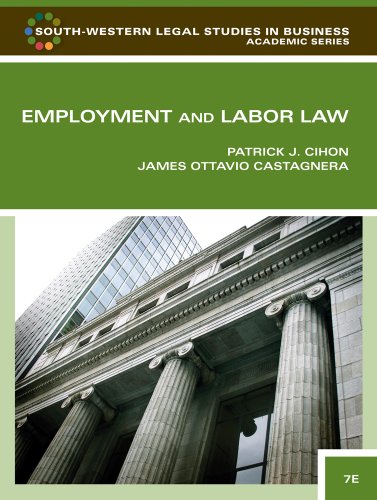In 1983, General Motors Corporation signed a collective bargaining agreement with the International Brotherhood of Electrical Workers,
Question:
In 1983, General Motors Corporation signed a collective bargaining agreement with the International Brotherhood of Electrical Workers, under the wage provisions of which new employees joining the bargaining unit were to be paid at a different (lower) hourly rate than current members.
A so-called two-tier wage scale resulted from the arbitration of a Postal Service dispute that same year.
Since then, a number of other unions have accepted two-tier systems as concessions in their collective bargaining agreements. Labor negotiators commonly refer to such two-tier wage concessions as “selling the unborn.”
Can you articulate an argument on behalf of these “unborn” (new employees) that two-tier labor contracts violate the union’s duty of fair representation?
Do you see an Equal Employment Opportunity implication to such an agreement?
See “IRRA Panelists Address Two-Tier Implications for Fair Representation and Equal Opportunity”
[No. 1 DLR A–5 (1985)].
Step by Step Answer:

Employment And Labor Law
ISBN: 9781439037270
7th Edition
Authors: Patrick J. Cihon , James Ottavio Castagnera





